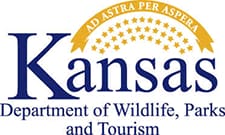

Pratt, KS -(AmmoLand.com)- Property boundaries aren’t always clear-cut, but the rules for hunting private land are.
Because Kansas is 97 percent privately owned, landowners still provide access for most of our hunting opportunities. Know and follow some of these key private land hunting rules to prevent an early end to your season, and more importantly, to ensure good relationships are maintained between hunters and landowners.
- Kansas law requires all hunters to have landowner permission before hunting on private land whether the land is posted with “No Hunting” signs or not. If the land is posted with “Hunting With Written Permission Only” signs or marked with purple paint, hunters must have written permission from the landowner.
- Make a point to notify the landowner of when you plan to hunt and how many will be in your party. This is a common courtesy that will help keep the lines of communication open, and also can aid landowners in determining whether illegal hunters are trespassing on their property.
- Leave the land how you found it, or better. This can include things as simple as closing gates after you leave, sticking to maintained roads, and removing any trash you find.
- All deer hunters and persons assisting them must wear orange during an open firearm or muzzleloader season. An orange hat and at least 200 square inches of orange is required. Of this, 100 square inches must be visible from the front and 100 square inches must be visible from the back on the upper half of the body. Camouflage orange providing the required orange is legal.
- Know the property boundaries and know them well. Hunting from roads or railways without permission is a form of trespassing called criminal hunting; since the Kansas Department of Wildlife, Parks and Tourism (KDWPT) is one of 44 states in the Wildlife Violator Compact, conviction of trespass or criminal hunting may prevent the convicted person from enjoying hunting privileges in other states, as well.
Hunting private land in Kansas is a privilege and should be treated as such. Take advantage of private land access and chances are, you may be looking for a new spot next season. Treat landowners and their property with the same respect you would expect from someone on your land, and great things can come of it.
If you witness trespassing or illegal hunting, please call the Operation Game Thief toll-free hotline at 1-877-426-3843.
About the Kansas Department of Wildlife, Parks and Tourism:
As a public steward of the Kansas natural resources, the mission of the Department of Wildlife, Parks and Tourism is to: Conserve and enhance Kansas natural heritage, its wildlife and its habitats–to assure future generations the benefits of the state’s diverse, living resources; Provide the public with opportunities for the use and appreciation of the natural resources of Kansas, consistent with the conservation of those resources; Inform the public of the status of the natural resources of Kansas to promote understanding and gain assistance in achieving this mission.
For more information on KDWPT, please visit www.kdwpt.state.ks.us.
